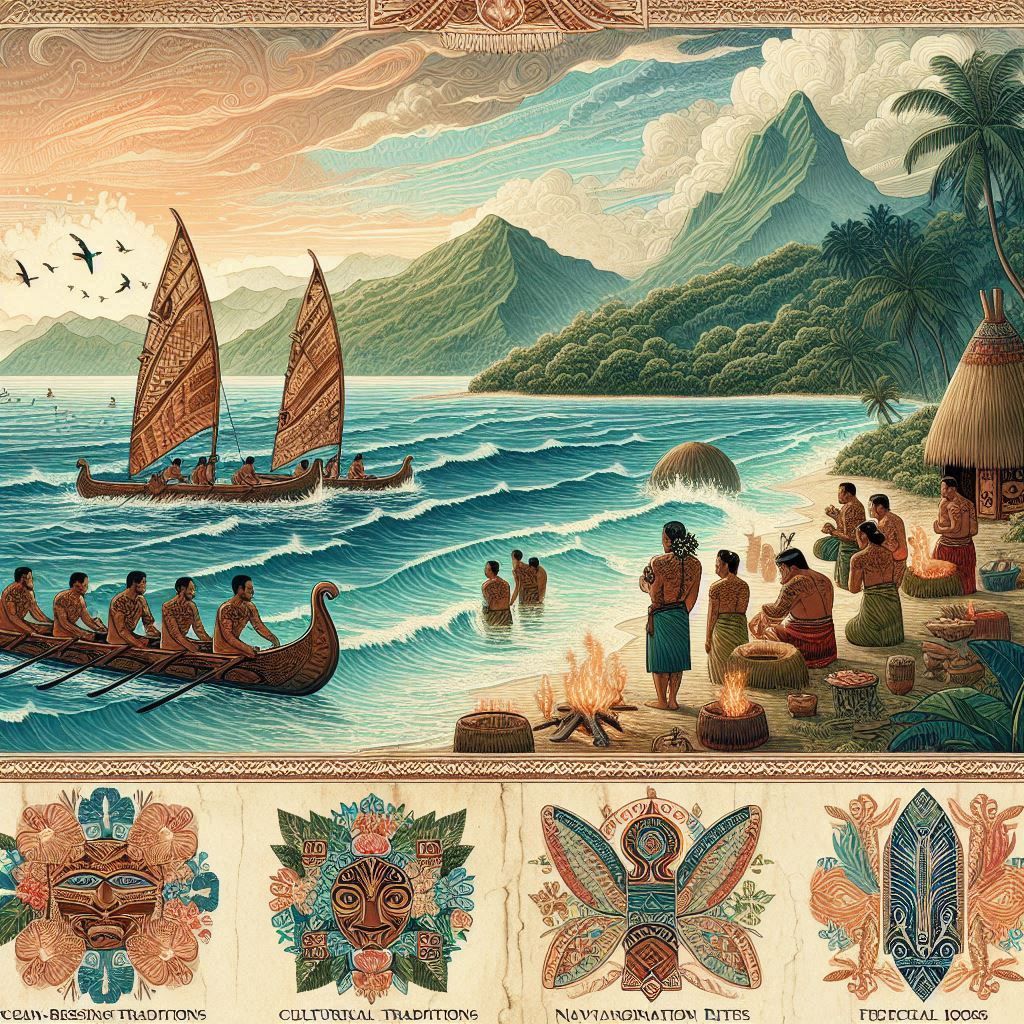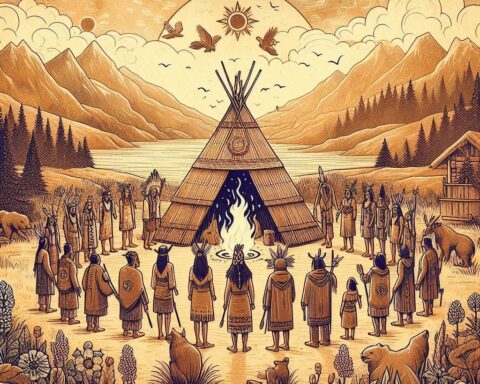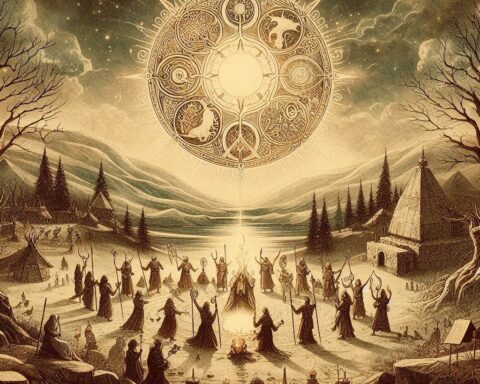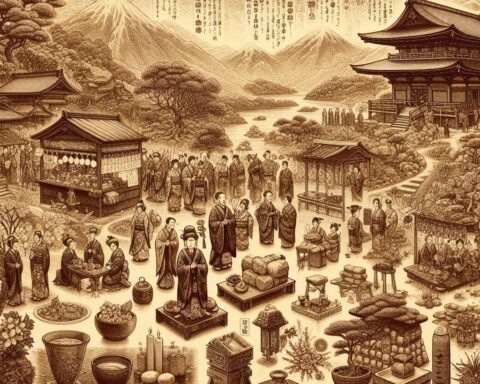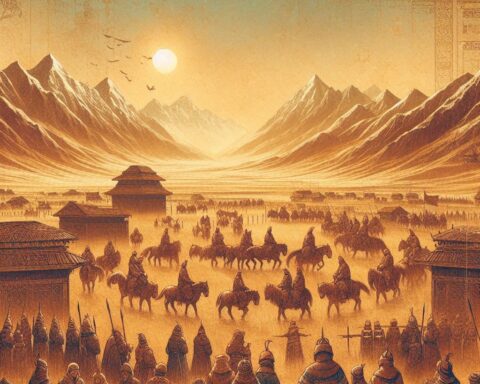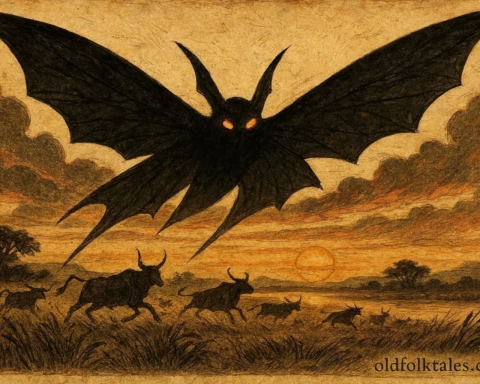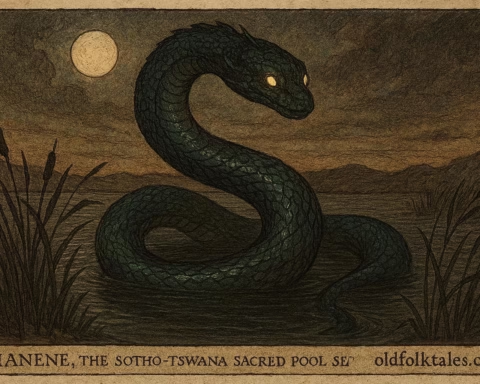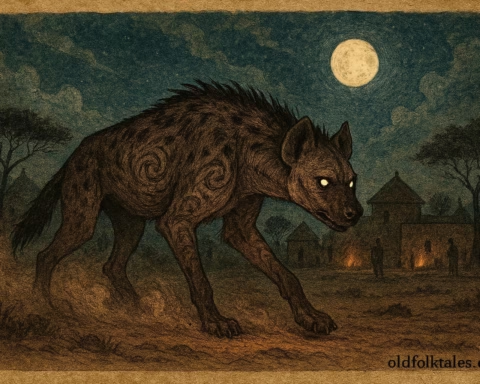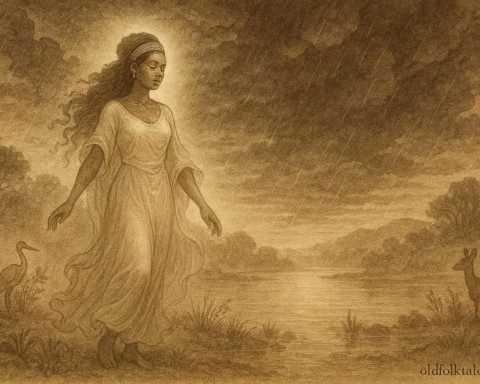From the glittering atolls of Tuvalu to the volcanic shores of Hawai‘i, the ocean is not just a horizon, it is an ancestor, a provider, and a guide. For the Polynesian peoples, the sea is a living being to be honored, consulted, and respected. Ocean-blessing traditions and navigational rites are woven deeply into their way of life, carrying echoes of the first great voyages that stitched the Pacific islands into one cultural tapestry.
Below are six powerful traditions that merge reverence for the ocean with the art of wayfinding.
1. Ava Ceremony (Samoa): The Drink of Harmony
In Samoa, before a great journey or fishing expedition, the ‘ava (kava) ceremony is held to honor the ocean spirits and ancestors. Participants sit in a circle while the tufa‘ava (ceremonial server) mixes the drink from the roots of the Piper methysticum plant. The first cup is always offered to the highest-ranking chief, symbolizing that leadership must be guided by wisdom when crossing the seas.
2. Launching Blessing (Hawai‘i): Awakening the Canoe
When a newly carved voyaging canoe (wa‘a kaulua) is completed, it is never launched without a kahuna (priest) blessing it. Sprinkled seawater, wrapped ti leaves, and chants call upon Kanaloa, the god of the ocean, for safe passage. Fishermen and navigators place offerings of coconuts, bananas, or fish at the bow before the first voyage.
3. Star Path Recitation (Micronesia & Polynesia): Mapping the Heavens
Navigators of the Marshall Islands, Kiribati, and broader Polynesia memorize entire “star paths,” reciting them in ritual before departure. This is not only a practical act of navigation but a sacred rite affirming the bond between the navigator and the sky. The stars are addressed by name, and their seasonal rising points are chanted like a prayer.
4. Shark Guardian Offering (Fiji): Pact with the Protectors
In some coastal Fijian communities, before setting out into deep waters, offerings of root vegetables, coconut meat, and yaqona (kava) are given to the shark gods, such as Dakuwaqa. Elders recite chants asking the sharks to guide voyagers and keep them safe from storms.
5. First Catch Blessing (Tahiti): The Gift Returned
When a crew catches its first fish after departing, it is customary in Tahitian tradition to return it to the ocean. This act acknowledges that the sea provides sustenance out of generosity, not obligation. The ritual is accompanied by a chant of thanks and a sprinkling of seawater on the crew.
6. Pwo Ceremony (Caroline Islands): Initiation of the Navigator
Perhaps the most sacred of all is the pwo ceremony, where an apprentice navigator becomes a master. Over several days, elders pass on chants, navigational lore, and blessings, sealing the knowledge in ritual secrecy. It is said that during pwo, the initiate forms a spiritual bond with the ocean, stars, winds, and currents.
Origins of Polynesian Ocean-Blessing Traditions
These customs trace back thousands of years, to when the first Austronesian voyagers left Southeast Asia and settled the far reaches of the Pacific. Navigators relied on environmental cues, stars, swells, bird flights, and divine guidance to reach islands scattered thousands of miles apart. For them, the sea was not a barrier but a bridge, and these rites ensured that every journey was part spiritual pilgrimage, part practical undertaking.
Knowledge Check
Q1: What is the purpose of the ava ceremony in Samoa?
A1: To honor ocean spirits and leaders before a voyage, ensuring harmony and wisdom in decision-making.
Q2: Why is a Hawaiian voyaging canoe blessed before launch?
A2: To awaken its spirit (mana) and ask the ocean god Kanaloa for safe passage.
Q3: What is a “star path” in Polynesian navigation?
A3: A memorized sequence of star positions used as a sacred navigational map.
Q4: Who is Dakuwaqa in Fijian tradition?
A4: A shark god who protects fishermen and voyagers in exchange for respect and offerings.
Q5: Why do Tahitian fishermen return their first catch to the ocean?
A5: To show gratitude and maintain balance with the sea’s generosity.
Q6: What is the pwo ceremony?
A6: A sacred navigator initiation in the Caroline Islands, sealing spiritual and practical mastery of voyaging.
Cultural Origin: These traditions arise from the shared Austronesian and Polynesian heritage that spans thousands of miles and centuries, blending spiritual reverence with unparalleled navigational skill.
